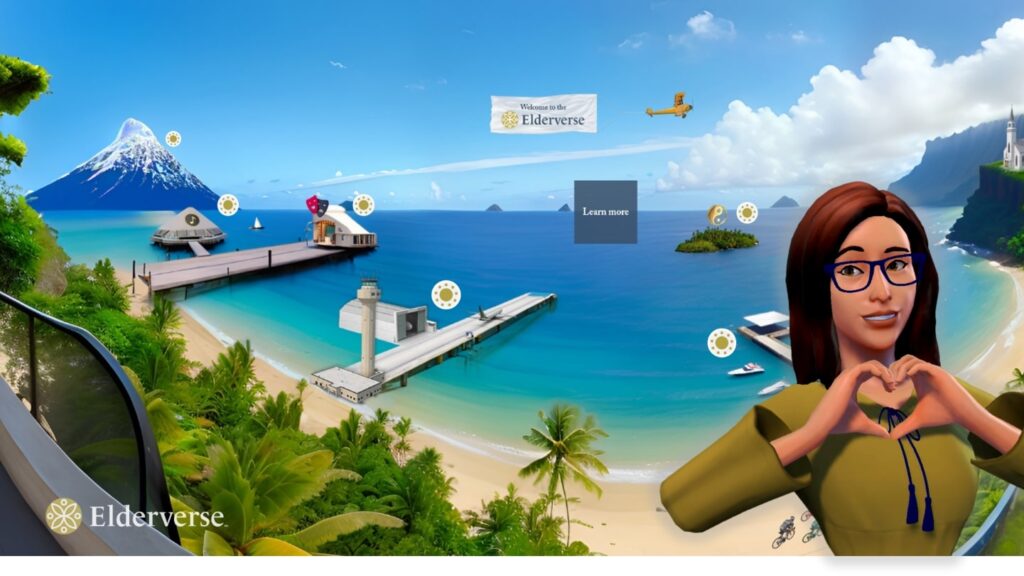
Mark Zuckerberg has the Metaverse. Spiderman has the Spiderverse. And now seniors have the “Great American Elderverse,” an immersive space for seniors who want to use virtual reality to socialize.
The Elderverse concept, co-developed by Mynd Immersive as an expansion of their existing VR programming, was unveiled at the CES conference in Las Vegas last week.
Mynd’s existing VR tools, which include a headset and tablet, were already meant as a way to get seniors to interact with peers — or in the case of long-term care communities, with their caregivers — Mynd executives had previously said.
The new Elderverse differs in several ways, Mynd CEO Chris Brickler told McKnight’s Tuesday.
The new platform does away with the tablet and starts users out on a lush virtual coastline, from which they can jump to any number of entertainment or therapy options, including a meditation island, “world tours,” or even virtual church sessions.
“From a tech point of view, it’s a big evolution for the company,” Brickler said. “For a senior who is cognitively healthy and can handle the adventurous aspect of navigating the world, it’s a foray into what younger adult audiences do [with open world video games].”
Not only is the idea for seniors to use the Elderverse world to interact with one another, but their family members also can use the tech or follow along with their smartphone, viewing a 2D replication of what an Elderverse user is looking at, and talking with them in real time, Brickler explained.
The concept of communal virtual spaces is gaining traction within senior living. While tech companies like Mynd are trying to create virtual worlds, the more grassroots Thrive Pavilion, which runs off Meta Quest headsets, has been steadily growing and offers a suite of VR programs for seniors to socialize, McKnight’s reported over the summer.
The overall picture of VR, mixed and augmented reality, for seniors and everyone else, has been termed “extended reality” by tech users and developers alike.
In addition to Mynd Immersive, other partners in the Elderverse project include: VR goggles maker HTC VIVE, the CTA Foundation and AT&T.
The Elderverse won’t be available until the second quarter of this year, Brickler said, adding that they are still “rounding up” donors for the company’s project goal to introduce VR therapeutics to 500 underserved senior care communities over the next few years.
The company continues to work on its VR therapy program for seniors in memory care, Brickler said, noting that, among its current pool of content is a VR “medication management” tool that lets seniors practice organizing their pills without real-world consequences.
Other innovations could include custom avatars for individual seniors, as well as a continual revamping of VIVE’s headset gear as technology switches from bulkier helmets to goggles and glasses.




